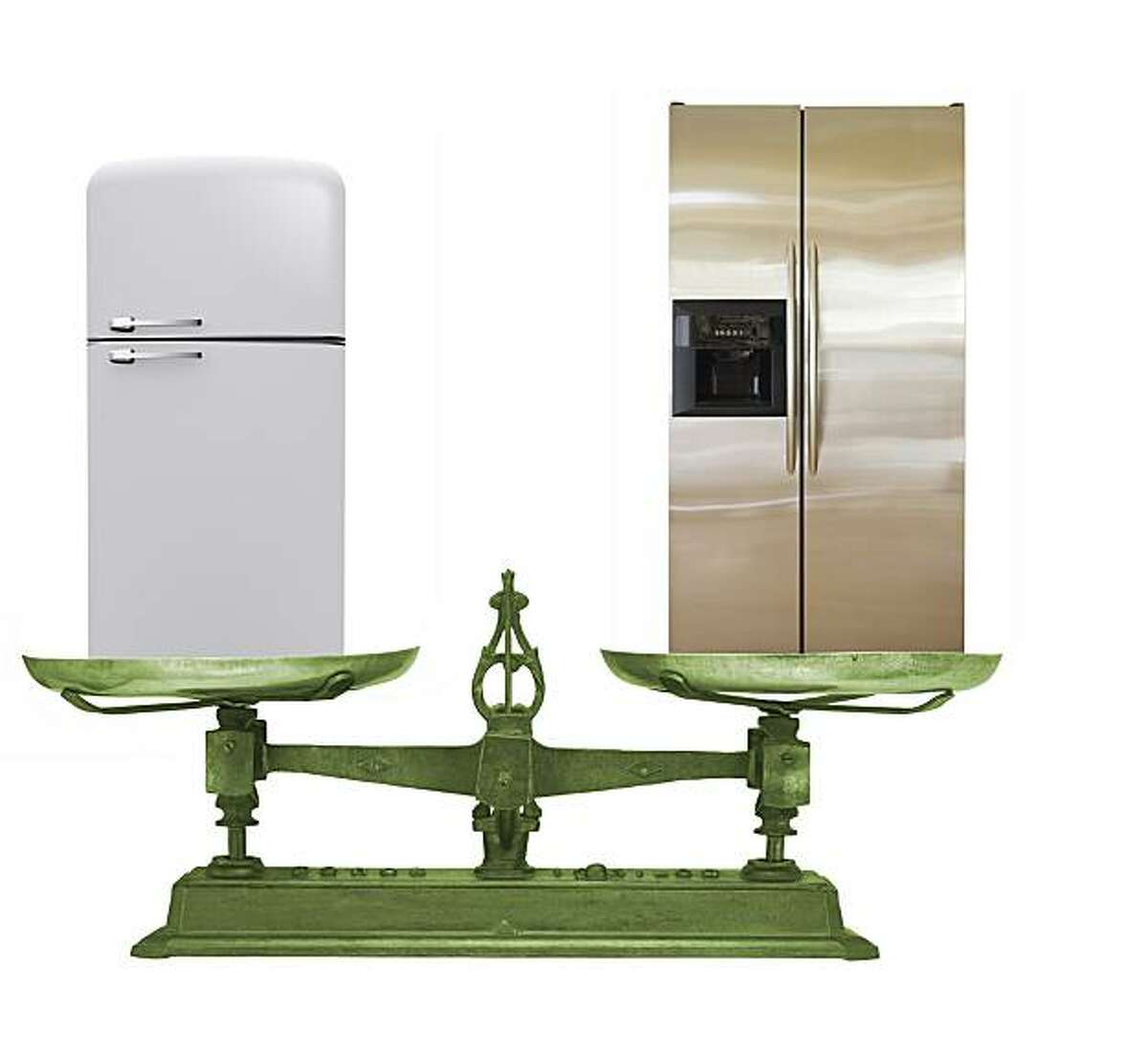The wheezing washer. The fridge on the fritz. When your home appliances are ailing, you may struggle with that perennial question: Repair or replace? Sure, new is always nice, but that can get pricey. However, if you funnel money into repairs, who’s to say it won’t break down again later? Decisions, decisions…
Waffle no more, homeowners: Ask yourself these five questions to get some clarity on what to do.
1. How old is the appliance?
Appliances aren’t made to last forever, and a general rule of thumb is that if your appliance has reached the ripe old age of 7 or more, it’s probably time for a replacement, says Tim Adkisson, director of product engineering for Sears Home Services.
However, the age of the appliance is just the first metric to take into consideration when figuring out how much “useful” life is left, he adds.
That’s because the life span of a household appliance varies based on a few other factors. First, consider how often it is used—a single person’s washing machine will typically last much longer than a family’s because, well, never-ending kid laundry.
Then, understand that routine maintenance—or the lack thereof—can also affect the life span. If you never clean your refrigerator’s condenser coils, for example, it will not operate as efficiently as a refrigerator that’s had its coils cleaned twice yearly.
In fact, regularly performing maintenance on your appliances is a key factor in getting your money out of them through longevity, reliable operation, and increased efficiency, says Jim Roark, president of Mr. Appliance of Tampa Bay, FL.
2. What will the repair cost?
Appliance repair costs can vary significantly depending on the repair type and appliance brand. That’s why you have to consider the trade-off between the cost of the repair and the cost of a replacement appliance.
One rule of thumb, says Adkisson, is that it’s probably wise to replace an appliance if the repair is going to cost more than half the price of a new one. So if a new oven is going to run you $400, you wouldn’t want to spend more than $200 to repair your existing unit.
Also, consider how frequently your machine is breaking down, advises Roark: Constantly paying for repairs can add up fast, so if the same problem has cropped up more than once, it’s probably time to throw in the towel.
3. How involved is the repair?
Sometimes, the type of the repair can dictate whether you need a new machine instead of a fixed-up one. For example, a telltale replacement sign for a washer is a breakdown in the machine’s transmission, which is responsible for turning the drum of the washer and transitioning the water throughout cycles.
“Attempting to remove or repair the transmission is extremely complicated,” Roark says.
By contrast, an error code on the control panel can be easily fixed.
“You might initially panic and think your machine’s internal computerized mechanisms are broken, but typically a professional is able to reprogram it,” Roark adds.
Bottom line: It’s wise to get a service call to find out what’s up before you assume it’s unsalvageable.
4. Would a replacement appliance save money in the long run?
You’ll also want to consider how much it costs to operate the appliance, in addition to the purchase price. That’s because the energy efficiency of appliances can have a major impact on total household energy usage: Appliances account for 12% of annual household energy bills, according to EnergyStar.gov.
If your sickly appliance is not Energy Star–certified, that might be even more reason to consider replacing it, since you will almost surely save money each month through lower energy bills, says Paul Campbell, director of sustainability and green leadership for Sears Holdings Corp.
As an example, he cites a typical Energy Star–certified washer, which uses about 70% less energy and 75% less water than a standard washer that’s 20 years old.
5. Could your old appliance benefit someone in need?
And finally, many of us hesitate to junk an appliance because of the environmental cost associated with waste. While that is a factor to consider, remember that your old appliance isn’t necessarily going straight to the landfill, Campbell notes.
Through the Responsible Appliance Disposal program sponsored by the Environmental Protection Agency, companies haul away and responsibly discard customers’ appliances when they purchase new, energy-efficient products.
“The customer can trust that their old product will be demanufactured and the components recycled following documented environmentally-friendly procedures,” says Campbell.
Post time: Nov-02-2022



